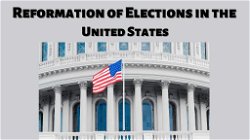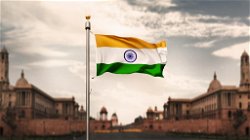Power and Pitfalls of Celebrity Endorsements in Politics
Alvish Asher
. 3 min read
A celebrity needs to have three qualities in order to gain support for a candidate: they need to be well-known, well-liked, and credible. Only then will they be able to attract support for a candidate. People like Oprah Winfrey, Beyoncé, and LeBron James are examples of influential figures who possess all three of these characteristics. Oprah Winfrey was credited with bringing Barack Obama to the attention of people all over the world during the presidential election of 2008. To effectively navigate this landscape, political campaigns often collaborate with developers to create engaging and interactive online platforms that amplify the celebrity's endorsement and facilitate communication between the celebrity and their audience.

Politicians Who are also Celebrities?
In India, our leaders are chosen through elections, and through elections, the general populace has the right to choose whoever they want to lead them. However, in a society as obsessed with celebrity as India's, it's almost expected to see actresses, athletes, singers, and other members of the celebrity clan using their "charm offensive" to gain a strong foothold in politics. In India, we have elections to choose our leaders, and through elections.
Power that Celebrities Have in Politics
In today's culture, which is dominated by the media, celebrities wield a significant amount of influence. People tend to follow the lead of celebrities in a variety of areas, including fashion, food, language, and lifestyle choices, among other things. Numerous children of all ages, including preteens and teenagers, have the ambition of achieving celebrity status in their adult lives and becoming famous as a result. According to the findings of one piece of research, young people between the ages of 6 and 17 are more likely to aspire to be a YouTube star, blogger, or vlogger.
Advantages and Disadvantages of Celebrity Endorsements both need to be considered
Associative learning is a common way to explain the impact of celebrity endorsements (Erdogan, Citation1999). As a consequence of this, responses that were initially directed towards the celebrity are likely to become associated with the endorsed object as well (Knoll, Matthes, Münch, and Ostermann, Citation2016). For instance, when celebrities are paired with candidates, positive feelings toward the candidates are enhanced as a result of positive feelings toward the celebrities.
Echo Chamber that is Social Media, as well as a direct line to the masses
According to SOJC Assistant Professor Nicole Dahmen, whose research and blogging focuses on the role of social media and visual communication in politics, "what we see on Facebook is dictated by algorithms that decide what you see based on what you like and dislike, what you comment on, and what you click on." The political discourse seems to be taking place in an echo chamber rather than receiving a variety of perspectives that contribute to it.
The Address Given by the President
The publication of the Presidential Address that was given at the APSA Annual Meeting the year before is always the first thing that appears in our first issue of each year. This year, we are honored to publish a piece titled "What Good Can Political Science Do? Rogers Smith's article titled "From Pluralism to Partnerships" Rogers Smith is currently the Christopher H. Browne Distinguished Professor of Political Science at the University of Pennsylvania.
Pakistani politics in the age of social media
It is important to note that Pakistan has the second highest percentage of its population that is comprised of young people worldwide, and the fact that this exists has completely reshaped the political landscape of Pakistan (Ittefaq and Iqbal, 2018, p. 4). Facebook is the social media platform that is utilized the most for political communication, despite the fact that Twitter is the social media platform that is utilized the most for political communication on a global scale.
Do Endorsements from Celebrities in the Political Sphere Carry any weight?
Katy Perry uploaded a new selfie to her Instagram account on Monday, this time showing her in front of a voting machine with a line of people waiting to vote for Los Angeles mayoral candidate Rick Caruso. Perry captioned the photo of him casting his vote with the following: "I am voting for a myriad of reasons (see the news), but in particular because Los Angeles is a hot mess." In spite of the widespread use of famous people on both sides of the political spectrum as a means of swaying voters' opinions.
Conclusion
The article discusses the role of celebrities in politics, particularly in India and Pakistan, and the advantages and disadvantages of celebrity endorsements in political campaigns. It also touches on the power of celebrities in influencing public opinion through social media, and the impact of echo chambers on political discourse. Ultimately, the question of whether celebrity endorsements carry weight in the political sphere is left open-ended, with examples given but no definitive answer provided.
More Stories from
Reformation of Elections in the United States
Electoral Reform: Improving Impartiality, Inclusiveness, Transparency, Integrity, and Accuracy.
India's New Parliament Bhavan: An Icon of Modernity and Functionality
The New Parliament Bhavan is a cutting-edge architectural marvel in New Delhi, India, serving as the modernized hub of the nation's democracy.
Child Marriage: A Global Challenge to Childhood Rights and Development
This article sheds light on the pervasive issue of child marriage, where millions of young girls and boys are married off before the age of 18.
Mastering Social Etiquette: Essential Tips for Polished Social Skills
It emphasizes the importance of being knowledgeable about social etiquette and paying attention to subtleties to avoid awkward situations.






.png?width=40&aspect_ratio=1:1)




.png?width=40&aspect_ratio=1:1)